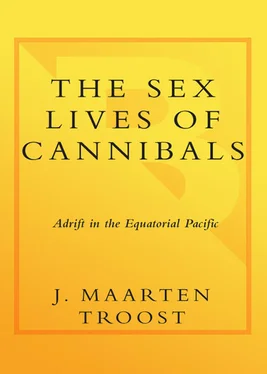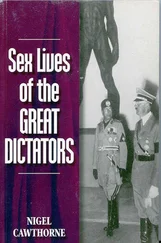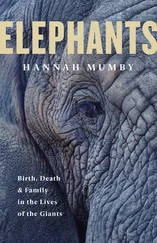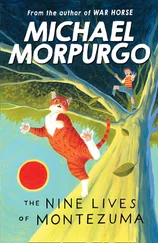J. Maarten Troost - The Sex Lives of Cannibals
Здесь есть возможность читать онлайн «J. Maarten Troost - The Sex Lives of Cannibals» весь текст электронной книги совершенно бесплатно (целиком полную версию без сокращений). В некоторых случаях можно слушать аудио, скачать через торрент в формате fb2 и присутствует краткое содержание. Город: New York, Год выпуска: 2004, ISBN: 2004, Издательство: Broadway Books, Жанр: Биографии и Мемуары, Путешествия и география, Юмористическая проза, на английском языке. Описание произведения, (предисловие) а так же отзывы посетителей доступны на портале библиотеки ЛибКат.
- Название:The Sex Lives of Cannibals
- Автор:
- Издательство:Broadway Books
- Жанр:
- Год:2004
- Город:New York
- ISBN:978-0-7679-1895-4
- Рейтинг книги:5 / 5. Голосов: 1
-
Избранное:Добавить в избранное
- Отзывы:
-
Ваша оценка:
- 100
- 1
- 2
- 3
- 4
- 5
The Sex Lives of Cannibals: краткое содержание, описание и аннотация
Предлагаем к чтению аннотацию, описание, краткое содержание или предисловие (зависит от того, что написал сам автор книги «The Sex Lives of Cannibals»). Если вы не нашли необходимую информацию о книге — напишите в комментариях, мы постараемся отыскать её.
The Sex Lives of Cannibals — читать онлайн бесплатно полную книгу (весь текст) целиком
Ниже представлен текст книги, разбитый по страницам. Система сохранения места последней прочитанной страницы, позволяет с удобством читать онлайн бесплатно книгу «The Sex Lives of Cannibals», без необходимости каждый раз заново искать на чём Вы остановились. Поставьте закладку, и сможете в любой момент перейти на страницу, на которой закончили чтение.
Интервал:
Закладка:
“I need a state, sir. The computer won’t let me—”
“Put in T-A-R-A-W-A.”
“Country?”
“Kiribati.”
“Kiri-what, sir?”
“K-I-R-I-B-A-T-I.”
“Sir, it’s not showing up in the database.”
“It’s an independent country. It’s been a country for almost twenty years. Surely The New Yorker ’s database of independent countries has been updated in the past twenty years.”
“It’s not showing up in the database, sir. Is there another name I could try?”
“Try Gilbert Islands.”
“I’m showing Ocean Island, Gilbert and Ellice Islands.”
“Ocean Island hasn’t been called Ocean Island in seventy years. It’s called Banaba.”
“Bana-what?”
“And the Gilbert and Ellice Islands are two separate countries now. The Gilbert Islands are part of Kiribati, and the Ellice Islands are now called Tuvalu.”
“Tuva-who?”
“Never mind. Let’s go with the colonial name.”
“All right, sir. Let me repeat the information. The address is: P.O. Box 652, The Main Road, Bikenibeu, Tarawa, Ocean Island, Gilbert and Ellice Islands. Telephone number 28657-00000. Is that correct?”
“Yes. I mean no. How much exactly is it going to cost me for you to send The New Yorker to the wrong island in the wrong country?”
“Let’s see. You’re not in Europe?”
“Nope.”
“And you’re not in Asia?”
“No.”
“And you’re not in Latin America.”
“No.”
“Okay. Then you’re in Other.”
She offered a chin-dropping figure. Already, the phone call alone was costing me the equivalent of the gross domestic product of Kiribati. I might have gone ahead with the subscription if I had been an English colonial officer stationed on Banaba in 1910, but I wasn’t, and I thought it imprudent to spend big bucks on a magazine that wasn’t at all confident that Kiribati existed.
Denied a magazine subscription, I turned to the other I-Matangs on the island. Most of them were Australian. “What have you heard?” I’d ask. “What’s with the blue dress?”
The Australians would inevitably begin “Americans are so puritanical…”
“Yeah, yeah, yeah,” I’d say. “Whatever. Now, what do you know?”
They knew nothing.
“I’ll see what I can find out,” Sylvia offered. “I’m meeting with an English consultant tomorrow.” While not quite as obsessive as I was, Sylvia was notably curious about recent affairs in Washington. This was her president after all.
“Well, I asked her about the cigar,” Sylvia said the following day.
“And?” I asked, positively drooling for the lowdown.
“She wouldn’t say. But she was really blushing.”
“Blushing? You mean this is blush-worthy news? What on earth did Bill Clinton do with a cigar? This is killing me.”
I imagined what it must be like in America. The Clinton Sex Scandal 24/7 on television. Newspapers with screaming headlines. Rumors on the Internet. Magazine pieces on what it all meant for America. Salivating Republicans. How I wished I was there. Instead, I found myself at reef’s edge, under the white light of a million stars, watching the night fishermen scour the reef for octopus, as I worked the knobs of my shortwave radio, longing to hear nothing more than a Jay Leno monologue.
CHAPTER 20
In which the Author discusses the Foreign Aid Industry, whose emissaries, the Consultants, arrive monthly, air service permitting, peddling Models of Sustainable Development, which have worked very well in Africa, followed by some thoughts on the Red Menace on Tarawa, the sinister agents from China, whose Evil Plottings were Subverted at every turn by the Author’s Beguiling Girlfriend, who engaged in the Black Arts of Spy Craft, the Perilous Game, a game that she did not master, which led to some false information being sent to Washington, possibly leading to Unforeseen Consequences in U..S.-Sino relations.
I decided to diversify from fiction writing. Now and then, I passed my scraps of art to Sylvia for perusal. She was very positive. “Um… this is very… descriptive,” she said after reading a passage describing a tree, which had taken me six weeks to write. But when she declared, in as encouraging a manner as possible, that my protagonist, my hero, read like a “caricature of a gargoyle,” I knew it was time to spread my wings. I began to edit papers for the local foreign aid industry.
In one week of editing a “feasibility study” I earned more than twice what the average I-Kiribati earned in a year. The study, funded by the Food and Agricultural Organization in Rome, recommended going forth with a plan to transform Butaritari into small-farmer plots for growing market vegetables, which would then be sold to middlemen on Tarawa, called “marketers,” who would sell the vegetables to the co-ops, who would then sell them on to consumers on Tarawa. It must have looked like a sensible thing to do over an espresso in Rome. Of course, how one transports perishable vegetables from an island that lacks electricity and refrigerators was never quite addressed. By air? By boat? Had the authors actually set foot on Kiribati? Nor were the implications of the bubuti culture mentioned. What is the point of working harder to earn more money, when at the end of the day you will be obliged to turn over your profit to anyone who asks? Nor did the study find it problematic that for the scheme to break even, a consumer would have to pay approximately $10 for a single tomato. No, the authors concluded, this is a good plan. Let’s fund it.
Whatever. I soon learned that the greatest beneficiaries of I-Matang aid were the I-Matangs themselves, and I was excited to finally get a piece of the pie myself. It had been an awfully long time since a dollar had come my way. In some alternate universe, I had credit card debts and student loan payments, but that universe was a long, long way from Tarawa. No one was calling me here to remind me that a payment was due. I had vanished from that world and I gave it no further thought.
Still, even though we had absolutely no need whatsoever for extra dollars pride compelled me to, at least now and then, bring in a paycheck. I did what I could to help Sylvia with her job. Indeed, on Tarawa I was known as the FSP husband. But here and there I enjoyed the sight of a check with my name on it. And so I edited.
This gave me an interesting perch from which to observe the foreign aid industry in Kiribati. To this day, I remain baffled by the UN. I could never figure out what they did. Every few months, Air Nauru would deposit another batch of fashionably dressed UN staffers, who would then spend most of their time on the atoll bitching about the I-Kiribati. “The people are so dirty,” said a Nigerian woman, tossing a Hermès scarf around her shoulders. She was on Tarawa to improve the plight of women in Kiribati. “How could you possibly live here?” asked the Frenchman with the tasseled loafers, after he was told that no, he could not have a club sandwich. He was in Kiribati to help the children.
Watching the parade of consultants that descended on Tarawa became the equivalent of watching the evening news for us. We knew what the chattering class back home was talking about simply by noting what causes the consultants represented. One day, for instance, a team of antismoking specialists arrived in Kiribati. I had the good fortune to spy upon them in the bar of the Otintaii Hotel, where they were meeting with officials from the Ministry of Health, grim-faced men who nodded politely as they were told of the tobacco industry’s evil designs for Kiribati and who, the moment these sullen but healthy Western people departed, opened up their tins of Irish tobacco and rolled their cigarettes with pandanus leaves and had a good laugh as they began an evening of serious drinking. They were aware, no doubt, of the 1996 figures on causes of morbidity in Kiribati, which included 99,000 cases of influenza (which killed close to 2 percent of the population in 1983), 15,000 cases of diarrhea that were serious enough to be reported (including 4,500 cases of dysentery, primarily among children), and 44 new cases of leprosy. There were no statistics on smoking-related diseases and deaths. There was no reason to collect such data. No one lived long enough to be mortally embraced by lung cancer and emphysema.
Читать дальшеИнтервал:
Закладка:
Похожие книги на «The Sex Lives of Cannibals»
Представляем Вашему вниманию похожие книги на «The Sex Lives of Cannibals» списком для выбора. Мы отобрали схожую по названию и смыслу литературу в надежде предоставить читателям больше вариантов отыскать новые, интересные, ещё непрочитанные произведения.
Обсуждение, отзывы о книге «The Sex Lives of Cannibals» и просто собственные мнения читателей. Оставьте ваши комментарии, напишите, что Вы думаете о произведении, его смысле или главных героях. Укажите что конкретно понравилось, а что нет, и почему Вы так считаете.












